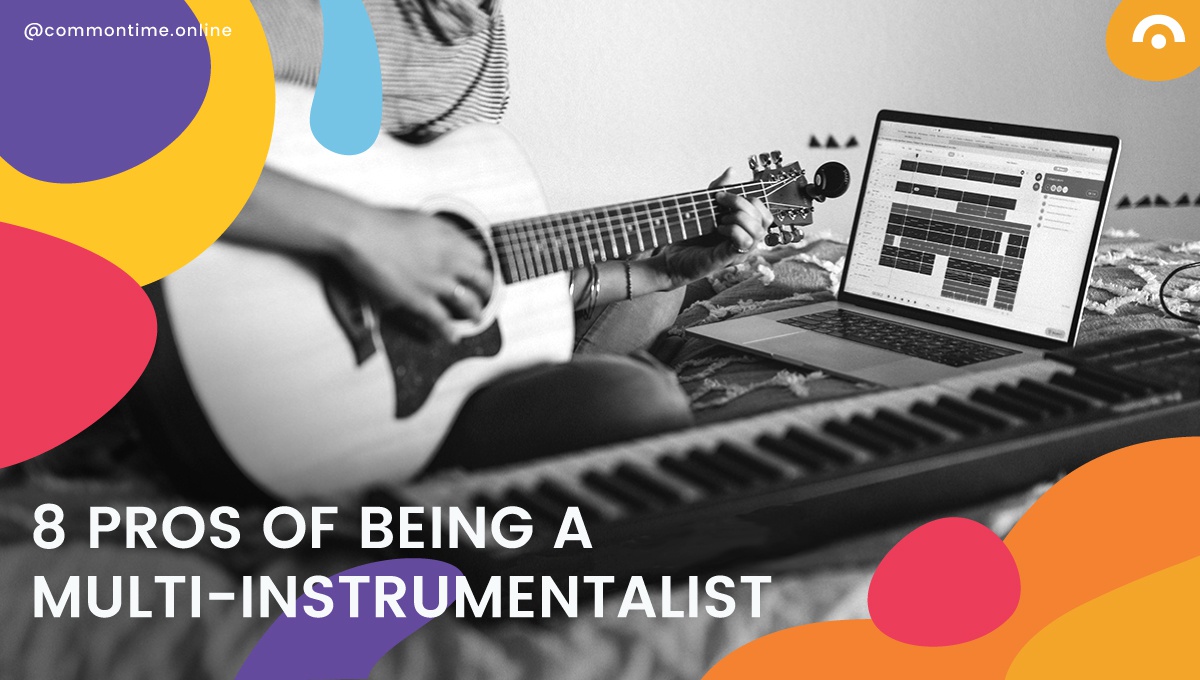The 8 Pros of Being A Multi-Instrumentalist
What do Paul McCartney, Prince, and PJ Harvey have in common? Yes, they’re all award-winning musicians, but they share something else: the exceptional talent of being multi-instrumentalists. Prince, in particular, was rumoured to have been proficient in 27 different instruments!
Instruments are one way that we can speak the language of music. Through music, we can communicate a variety of emotions that words cannot express. Even instruments that seem to have little in common - like the tabla and guqin - still enable us to connect through music.
Benefits of Multi-Instrumentalist
Learning to play a musical instrument can also lead to greater patience and discipline, increased confidence, and improved motor skills. Does playing more instruments mean we see more benefits? The answer is yes! While becoming a multi-instrumentalist musician requires more commitment, there are many benefits to learning more than one instrument.
Here are just a few reasons to pick up a second (or third) musical instrument!
Gain a wider musical perspective
Learning a second instrument can bring to light aspects of music that you may not have noticed while learning your first. The more you know about other instruments, the better you’ll be able to understand how they interact with one another and how sounds layer and blend. Moving from one instrument to the next may also help you appreciate counter-melodies.
Become fluent in multiple ‘dialects’
Although music is considered a universal language, you might say that each instrument has its own ‘dialect.’ We can broaden our appreciation of other genres by becoming multi-instrumentalist artists. A pianist who also plays the guitar or drums, for example, will gain a better understanding of the role of rhythm in a melody. It also means you’ll be able to communicate and coordinate better with your fellow band or orchestra members. By learning to play the drums, you will speak the same ‘dialect’ as other drummers!
Get access to more opportunities as Multi-Instrumentalist
Maybe a local band is looking for a guitarist but you’re a drummer, or a major orchestra needs violinists but you play the flute. When you are able to play multiple instruments, you will find that your opportunities multiply. Being a multi-instrumentalist makes you more adaptable to fill different roles. Or, if you don’t want to join a band or orchestra, you can even create your own one-person show!
-
Also Read: The Top 5 Advantages of Online Dance Classes- Why to Start Today!
-
Gain a deeper understanding of music theory
Learning a new instrument will improve your application of music theory. If you want to develop your rhythmic skills, learn to play the drums. If you’re struggling with harmony, the piano will help you see it clearly. Theory becomes a real hands-on tool rather than an abstract academic subject when we try a new instrument. It adds an extra dimension to our musical knowledge and expressions, even on our primary instrument. As a multi-instrumentalist musician, you can also significantly increase your reading, transposition, and sight-reading skills!
Hone your songwriting skills
If you’re a songwriter, knowing how to play different instruments will help you compose songs with more texture. You could also make your own recordings if you have access to more instruments. To generate high-quality work, songwriters, composers, and music producers must be able to play and understand multiple instruments. How would they know how to write for the guitar if they don’t understand chords, or a symphony if they don’t understand the nuances of the violin or trumpet? Learning more than one instrument can provide you with essential practical experience that will help you advance in your career.
Develop better cognitive abilities
Different instruments influence the brain in different ways. Guitarists require intuition, pianists may need to be more ambidextrous, and drummers are problem solvers. Since music needs the simultaneous processing of sound, sight, and touch, it allows multi-instrumentalists to process multiple sensory experiences at once.
Communicate better with other musicians
Another important aspect of musicianship is knowing how to interact with others. As a bandleader, conductor, composer, or producer, playing multiple instruments gives you a depth of knowledge that will vastly improve your ability to relate to and communicate with other artists.
Take charge of your learning through online classes
One of the major benefits of learning multiple instruments is that the Internet has made it much easier to access lessons virtually from anywhere across the globe. There are a plethora of online instruction websites on practically any instrument that you’re interested in playing.
Patience is crucial when you’re on the path to becoming a multi-instrumentalist artist. You may struggle with a particular instrument despite having learned other instruments with ease. You may feel frustrated, but it's important to recognise that every instrument has a different learning curve for every learner.
Conclusion
Are you interested in learning to play a new instrument? Or maybe you aren’t a musician yet and want to become one. Look no further! CommonTime offers high-quality, accessible learning opportunities in music, dance, theatre, and visual arts. Click here to browse CommonTime’s growing catalogue of vetted, professional musicians, or search for another art form altogether! All the world’s your stage on CommonTime!
Don’t have a CommonTime account? Sign up for free and start booking online music lessons today!



